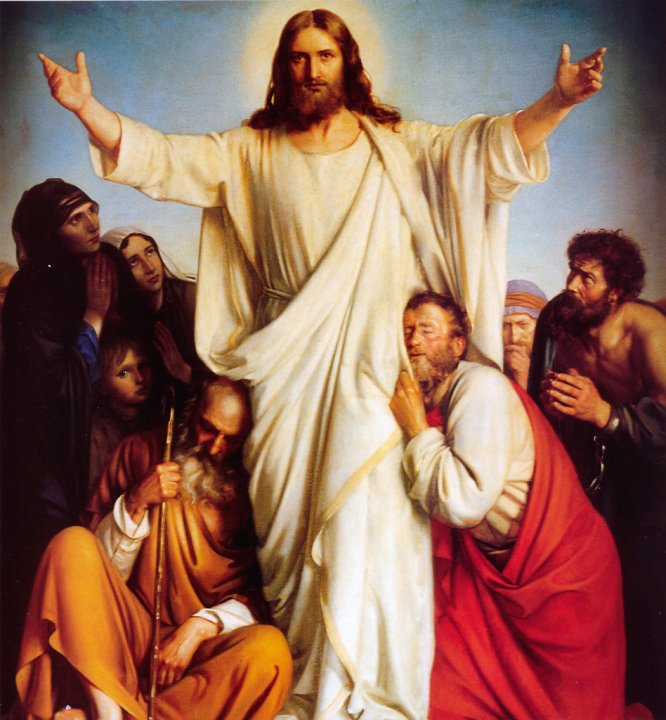26th Sunday in Ordinary Time-C
I Reading Amos 6:1.4-7: Those who sprawl and those who bawl will be exiled.
II Reading: 1 Timothy 6:11-16: Do all
that you have been told until the Appearing of the Lord.
Gospel: Luke 16: 19-31: God things came your way, just as bad things came the way of
Lazarus. Now he is being comforted here while you are in agony.
The Rich Man and Lazarus: The Self-Indulgent vs. the Man of Faith
Only Luke records the Parable of Dives and
Lazarus, the last in a series dealing with the misuse of wealth. Dives who had
refused to listen to Moses and the Prophets in his life time regarding the
treatment of the poor, suffers misery hereafter, while Lazarus has his reward
in the bosom of Abraham at the banquet of the blessed.
Jesus identified Lazarus was named Lazarus
where as the rich man was not identified and named in this passage. The eternal
truth is much more blessed and much more terrifying than any mere human
description. The rich man is punished for his indifference to the poor man at
his door. The rich man misused two opportunities i.e. wealth and religion. The
name Lazarus means God is help. He is an allegorical
representation either of his poor disciples (Lk 6:20). Wealth destroys society
unless equitably shared. The history and present society shows that often
wealth causes havoc in the heart of people. Jesus conveys a good lesson to
everyone today that the Pharisees were wrong in thinking that their wealth was
a sign of their holiness or God’s reward for it; if at all, it was a sign of
just the contrary. Neither is poverty a sign that the poor people come second
in God’s love. Their trust in God will not fail them; while those who put their
trust in wealth, are in for a rude shock when their end comes. Jesus confirms
that rich people seldom learn the lesson that riches are dangerous because of
their pride, greed and unconcern for the poor. We do not read that the rich man
committed any particular crime; it was lack of concern for the poor that cost
him heaven. Neither did Lazarus enter heaven just because he as beggar, but
because, in his poverty, he put his trust in God. Thus, wealth easily leads
people to selfishness and to trust in themselves, whereas poverty patiently
borne, leads a person to put his/her trust in God who does not fail anyone. In
other words, the parable of the rich man confirms the teaching of Jesus in the
Sermon on the Mount: “How happy are you
who are poor: Yours is the Kingdom of heaven” (Lk 6:20). It is not having
of wealth that Our Lord condemns, but the misuse of it.
1.
A difference in life (v.19-21)
a.
Rich man nameless, Lazarus named
b.
Rich man wealthy, Lazarus poor
c.
Rich man healthy, Lazarus disabled
d.
Rich man lived in luxury and extravagance; Lazarus begged,
helpless
2.
A difference in death: Lazarus died and was escorted to
Paradise; rich man died and was buried (22)
3.
A difference in eternity (23-31)
a.
Rich man in hell, Lazarus in Paradise
b.
Rich man saw glory, Lazarus was in glory
c.
Rich man was alone, Lazarus had fellowship
d.
Rich man had burning sensation, Lazarus had water
e.
Rich man tormented, Lazarus comforted
f.
Rich man remembered his former life, Lazarus was silent
g.
Rich man was fixed in hell, Lazarus was fixed in Paradise
h.
Rich man agonized for loved ones, Lazarus was settle in eternity
i.
Rich man begged for other chance, Lazarus was silently at peace
j.
Rich man was unable to intercede for his family, Lazarus was at
rest in God’s promises.
Thought:
Two conditions are absolutely needed to enter into God’s Kingdom and be saved:
humble trust in God and concern for the poor. What good is it for a man to gain
the whole world, yet forfeit his soul? (Mark 8: 36).

No comments:
Post a Comment